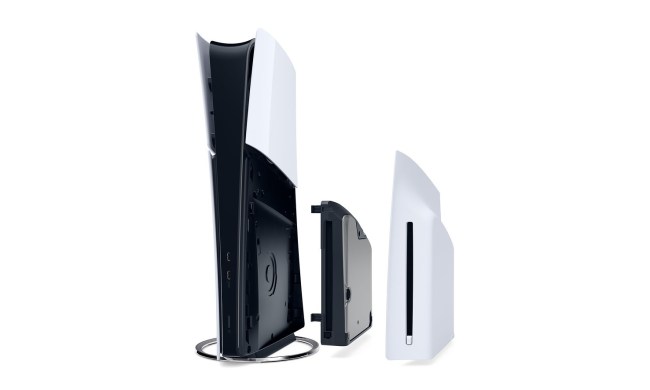Since 2010, Razer has been a regular presence at the Best of CES Awards, catching the eye of critics and gaming enthusiasts with experimental prototypes, gaming laptops and desktops, and game controllers. That’s made it incredibly successful, especially with PC gamers.
Later this year, though, the attention of the gaming world will shift to consoles. And this all comes amid the backdrop of a continuing global pandemic. But Min-Liang Tan, CEO of Razer, says the company has never had a down year, and he doesn’t expect that to change anytime soon.
“We’re known for our hardware … but our business is really our ecosystem,” he says. “We’ve got hardware — peripherals and laptops. We’ve got a massive software platform with 100 million users. Finally, we’ve what we like to call services, which allows us to monetize on top of our platform. … We’re are not a gaming company. We’re a gamer company.”
Like many gaming (or gamer) companies, the pandemic has been good for Razer’s bottom line, with revenues jumping more than 25% year over year. And while the so-called COVID bump in gaming has been tempered somewhat as communities open up, a lot of people who got into or back into gaming during the rush of stay-at-home orders haven’t given up the hobby.
And while Razer is known for its PC business, Tan says of the PlayStation 5 and Xbox Series X: “I think it’s going to be huge for us.”
It won’t be immediate, though. Companies like Razer that make peripherals typically don’t see a bump until systems have been out for a while. So, for now, the company is focusing more on its Kishi universal game controller in the console space, working closely with Microsoft as it launches xCloud on GamePass.
“When you transfer a high-quality game over to mobile, you’re going to have a problem,” says Tan. “You might have all the high fidelity, but the game was not designed for the touchscreen. That’s where peripherals give you the same experience, even in the mobile phone form factor.”
Tan’s as bullish on cloud gaming as he is on next-gen consoles, saying it could be another big boost for Razer. He’s just as optimistic about the rise of 5G, calling it another catalyst for gaming growth.
Moving beyond PCs
Razer is not putting all of its eggs in the hardware business, however.
While it’s best known in the U.S. for its gaming systems, the company’s reputation in other countries is more centered around its financial technology (fintech) business – one that’s growing at a phenomenal pace.
RazerGold, a virtual credit that’s interchangeable within several games, has proven to be an especially big hit in Latin America and Southeast Asia. Young gamers or others without credit cards can buy RazerGold at a convenience store to top off their in-game accounts. In the first half of 2020, the division processed $2 billion in digital payments.
“People know us for our hardware, but we’re one of the largest fintech companies in the world,” says Tan.
The company is so gung ho on its fast-growing fintech operations that it’s hoping to build a virtual bank network for younger players off of them.
“Very recently, we made an application for the digital bank license for Singapore,” says Tan. “We’re still waiting for the results. But we are regulated in many countries, and we really think it’s a platform that is going to continue growing for us. … We see ourselves as the layer between game content and gamers. Maybe a good [comparison] example is Apple, where everyone knows their hardware, but they have a massive service business as well.”
Further nudging the company to focus on fintech is the less-scintillating area of manufacturing issues. While Razer’s supply lines are back at full operation after shutting down in the early days of the pandemic, physically getting products to customers isn’t as easy as it once was.
“The one thing that worries me right now is freight costs,” says Tan. “Freight costs are through the roof at this point in time. Air Freight is just super-expensive — it’s by a factor more expensive than it used to be right now because there are no passenger flights. There are just cargo flights happening right now, and they’re not enough.”
That could cause some issues as the holiday season draws near, but ultimately, Tan says, Razer stands ready to supplement gaming in all its coming forms — and benefit from the company’s growth.


